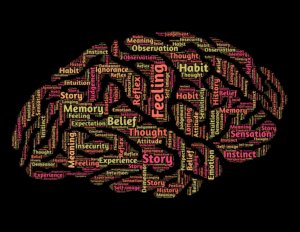Addiction treatment and behavioral health services have become crucial offerings to the public to mitigate the damage that unchecked addiction can wreak on a person, on their home, and on the communities that they are a part of.
The United States has been suffering from an opioid epidemic for the better part of 3 decades now. In that time, there has been an increase in drug overdose deaths due to synthetic opioids, heroin, and other common substances of abuse such as alcohol.
Encore Recovery has seen firsthand the increase in alcohol misuse beginning near the start of the pandemic, leading many people to seek out a qualified alcohol rehab in Virginia.
With the ongoing public health crisis due to the COVID-19 pandemic, the number of substance use disorders and potential for abuse has significantly increased. This has led or contributed to a spike in overdose deaths, domestic disputes, and a development or worsening of pre-existing mental health conditions.
Just as harmful as the physical effects of addiction are the feelings of shame and guilt that often accompany a substance use disorder. Public education on addiction has not been quick to catch up with the different paradigms of thought when it comes to addiction and the best course of treatment. Those who grapple with alcoholism often do so in silence, and ask themselves daily whether this is something they can fully will themselves to fix or if there is a part of this situation which requires aid and medical help. That is the crux of the question, “is alcoholism a disease”.
There are many different lenses in which addiction can be viewed, with many of them benefitting from advancements in neuroscience and the understanding of trauma. One of the prevailing modes of examining addiction is through the lens of the disease model of addiction. However, before we tackle that, discussing what is perhaps the most unhelpful paradigm of thought that has existed for many years would be useful.
What is the Moral Model of Addiction?

A common misconception that the hard working people in the addiction treatment space have fought to clear up is that addiction is closely tied to a person’s character, ethics, or intentions. Many people unfortunately still believe that addiction is a moral failure. To believe this is a failure to understand that addiction is a condition that affects people in all walks of life, circumstantially, without cause or precedent at times.
The moral model of addiction is one that has been used for much longer than the current medical and scientifically oriented approach towards addiction and addiction treatment today. It is a name given to the mode of thought that common prior to modern addiction treatment.
Consider just a century ago, if you were having an “alcohol problem”, known today as a substance use disorder in proper parlance, it was considered a failure on a spiritual and moral level. While not everyone who carries this opinion is religious, there is certainly a religious underpinning to the belief that substance use issues are driven by a lack of moral virtuousness or spirituality.
Nowhere is this more evident than the Prohibition Movement in the early 20th century, signified by the signing of the Volstead Act. The movement’s ideology that alcohol was a poison that contributed to societal harm was seeded a century prior in the early 1800s by what was known as the temperance movement. The temperance movement sought to advocate that moderation was most important when it came to the consumption of alcohol. The movement, in its most extreme forms, supported total abstinence from the imbibing of alcohol.
The temperance movement was spurred by widespread religious revivalism of the time, no doubt closely linked to The Second Great Awakening which swept the nation. Ultimately, it was religious groups that were prominent backers of prohibition, though there were certainly many politically and socially motivated reasons that the Prohibition Era came to be. The lack of organized addiction treatment or understanding of behavioral health services due to the times meant that people largely believed that a man (or woman) could not keep away from the drink because of a lack of piety.
It is also important to remember that this period in American history suffered particularly higher rates of alcohol abuse as well as domestic violence/spousal abuse. Because of this, one of the biggest backers of prohibition was the women’s suffrage movement. An important distinction is that these groups did not entirely miss the mark stating that alcohol was to blame for the issues that society was experiencing in regards to substance use, but rather that alcohol was the catalyst that sped up or even instigated moral decay within a person’s spirit.
The bottom line of the moral model of addiction was this: a person who is addicted is making poor choices of their own volition, they lack moral piety or principles, and that they can stop should they choose to.
This lens, needless to say, lacks compassion as well as an understanding of how alcohol affects a person’s physiology. There are many people who are suffering from addiction that have every reason in the world to stop, but they simply cannot. They require assistance, much like a person who is ill requires support and medical expertise to become healthy once more. Furthermore, when a person becomes ill, we may question their lifestyle and their habits as a contributing factor for their illness, but we never quite blame them for becoming ill.
The Disease Model of Addiction in Treatment
If a person catches a cold, you may suggest that it is unwise to get so little sleep, to eat so poorly, and to not work at reducing stress levels. Yet, when they catch a cold or flu, we intuitively understand that this is now a medical problem to be diagnosed and aided towards a solution.
The disease model of addiction steers the conversation of addiction towards this mentality and mindset. Whereas in our history, alcoholism was seen as a moral and character flaw that contributed to societal woes, the disease model benefits from our modern understanding of neuroscience and biology.
In short, the disease model of addiction is heavily predicated on the idea that addiction and alcoholism have significant genetic components that are not negligible. This inherited susceptibility can be exacerbated by environmental factors. In other words, the question “is alcoholism a disease” can be a resounding yes based on the broad definitions of what classifies a disease. In this case, if predispositions towards alcoholism or addiction lie in an individuals brain, and prolonged addiction alters an individuals brain which produces negative outcomes, then alcoholism can certainly be considered a disease.
An important fact to recognize about the disease model of addiction is that it does not aim to excuse a person from being proactive about their recovery from addiction. Ultimately, the addict possesses greater agency than they believe in managing their condition, and qualified treatment staff and programs are there to guide the person towards productive, healthy mindsets and coping strategies.
The Neuroscience of Addiction: Is an Addict’s Brain Different Than Others?

One of the greatest understandings of our era is that the brain is in fact malleable. This study from 2009, eloquently states that “Addiction is a disease of neuroplasticity”
The paper goes on to discuss that neuroplasticity plays a critical role in how addiction can effect a person’s behaviors years after they detoxed and have been sober. The full realization of this is reflected in the emphasis treatment programs have in developing proactive coping strategies and lifestyle changes that can supplant the need to rely on substances for anything.
Encore understands that addiction treatment often involves a dual-diagnoses of both a substance use disorder and a mental health condition which often presents a chicken and the egg scenario. Sometimes a condition such as clinical depression may preclude the development of a SUD, or at times it may be the case that a SUD such as Alcohol Use Disorder, may be the instigating factor in which clinical depression or anxiety follows.
In regards to what we currently understand about neuroscience, the answer to the titular question of this article, “is alcoholism a disease”, is yes: an addict’s brain is different. However, it’s not quite that simple.
However, what does that truly mean? The intention is certainly not to paint the addict as someone outside the ordinary. The addict’s brain is different because, due to neuroplasticity, just about everyone has a unique brain that has been influenced by their predispositions, habits, and circumstances in life.
A publication with more than 1600 citations in the prestigious scientific journal, Nature, elaborates that the mechanism of neuroplasticity is positively engaged through the usage of anti-depressants when treating depression. Conversely, it was observed that chronic stress can precipitate depression, which then inhibits neuroplasticity and can keep the brain suspended in that mode. Since we know that addiction is often comorbid with depression or anxiety disorders, a great picture begins to form.
How Does Addiction Affect the Brain?
The reason why the disease model of addiction has taken hold as the prevailing and most proximally true lens for viewing addiction rests primarily on the fact that, much like this article from Harvard Health states, addiction is not much different than a brain disease in that in moderate to severe cases it affects the brain’s stress, reward, and impulse control systems.
In other words, prolonged addiction actually creates changes in the brain that further predispose the addict to continued entrenchment in addiction. The usage of drugs that allow the user to experience a large spike in dopamine creates an intense activation of the reward systems in the brain. In time, the frequency of this activation primes the brain to expect it and respond accordingly.
Any time a cue that signals the potential availability of drugs is given, the person in question will strongly crave the substance and its effects. This becomes a very difficult cycle to break out of due to the now reflexive nature of the response. For any potential person who asks themselves, “is alcoholism a disease”, one need only look at this engendered reflexive response as a major indicator that changes in that person’s brain have occurred due to addiction.
Alcohol Rehab Virginia
In todays post, we answered a question (is alcoholism a disease) that those who set out to question the nature of addiction have asked for hundreds of years. We have no doubt that there will be supporters of this theory and detractors as well, but ultimately what is important is that those who are suffering from addiction are met with compassion and understanding.
Encore Outpatient Services provides addiction treatment in Virginia for those who are suffering from a substance use disorder such as alcohol addiction or opioid addiction. Addiction is addiction, and Encore is confident that our dedicated and experienced staff can help guide you or a loved one onto the path of recovery with our addiction treatment programs in Virginia.
Encore understands that addiction is a complicated disease and that complex cases are not only common, but expected. Addiction is not typically a problem that is solely from physical dependence, nor is it solely a problem with mental health origins.
It is our belief that the best results come from a holistic program that takes into account the patient’s needs for medical management, therapy, and wellness program that when combined, offer a robust treatment protocol.
For more information on Encore’s treatment programs or admissions, contact us at (703)-596-3063.